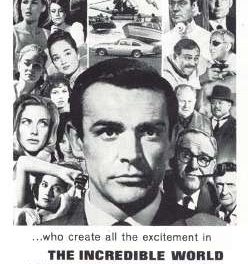At this time of crisis because of the COVID-19 pandemic, our ability to physically touch is severely restricted, in order to protect ourselves and others from illness as well as police intervention. This has resulted in an even bigger shift to digital technologies and online interaction with hashtags such as #togetherapart encouraging more culture and connection on the internet in lieu of in-person events and meet-ups. Indeed being in touch is incredibly important: it helps us to stay safe, informed, and connected for our physical and mental health and our overall wellbeing. However, while people are suffering physically, emotionally, and financially, many in positions of power, including some governments and wealthy big business owners, seem more out of touch than ever.
This call seeks contributions of and on visual culture, broadly defined, including writing, art, short films etc within the themes of COVID-19/crisis and connection. The aim is to create a space for people to connect through the production and consumption of culture during COVID-19, specifically those who are often already the least safe and most silenced in a systemically racist, capitalist, heteropatriarchal society: women; non-binary people; LGBTQ+ people; people of colour; poor and working-class people; people with disabilities; young people; and others who are disenfranchised. The intention is not only to amplify such voices, but also to raise money for those who are struggling financially, or may do so in the near future because of the crisis.
Crisis—Connection—Culture is to be published as a special issue of MAI: Feminism and Visual Culture, an open- access online journal of new feminist research and creative work. Potential contributors should, therefore, ensure that both feminist and visual elements are clear foundations for submissions.
This special issue will cut across arts, humanities, the social sciences and beyond. Individual submissions could focus on: film; television; other screens; social media; comic and graphic novels; photography; painting; theatre; dance; performance; fashion; games and gaming.
Examples of topics could include but are certainly not limited to:
- crisis, creativity, and mental health;
- the shift from in-person to online ‘events’ such as theatre, film festivals and viewing parties, dance classes etc;
- online ‘events’ and isolation;
- digital and/or visual activism at a time of crisis;
- politics, COVID-19, and visual culture;
- the visual and the haptic;
- home/work space and the creation of visual culture;
- inclusivity and accessibility in relation to online culture during COVID-19;
- the impact of the shift to the digital for survival/connection/culture for those without the technology or knowledge;
- crisis and cultural innovation;
- the representation of pandemics, crises etc in visual culture;
- visual culture and trauma.
A variety of submissions are welcome, from accessible academic pieces to personal reflections or creative and video responses. Work-in-progress will also be considered. The style guide as well as information about word length etc. can be found here: https://maifeminism.com/submissions/
We understand that prospective contributors will already have a range of pressing real-life commitments and worries during this crisis (health; finances; childcare etc.) and we would like allow more time for developing your projects/ideas. We will be considering submissions through April, May and early June.
Please be mindful that everyone has more to deal with right now so do check if the MAI website (linked above) can answer your questions before contacting via e-mail.
Potential contributions or expressions of interest should be sent to BOTH Leanne Dawson leanne.dawson@ed.ac.uk AND contact@maifeminism.com
Contributors are encouraged to share their work as well as a donation link (e.g. PayPal if the contributor is in need of money or a link to a food bank or similar for contributors with a secure income) that readers may use to donate directly, if they are in a position to do so.




